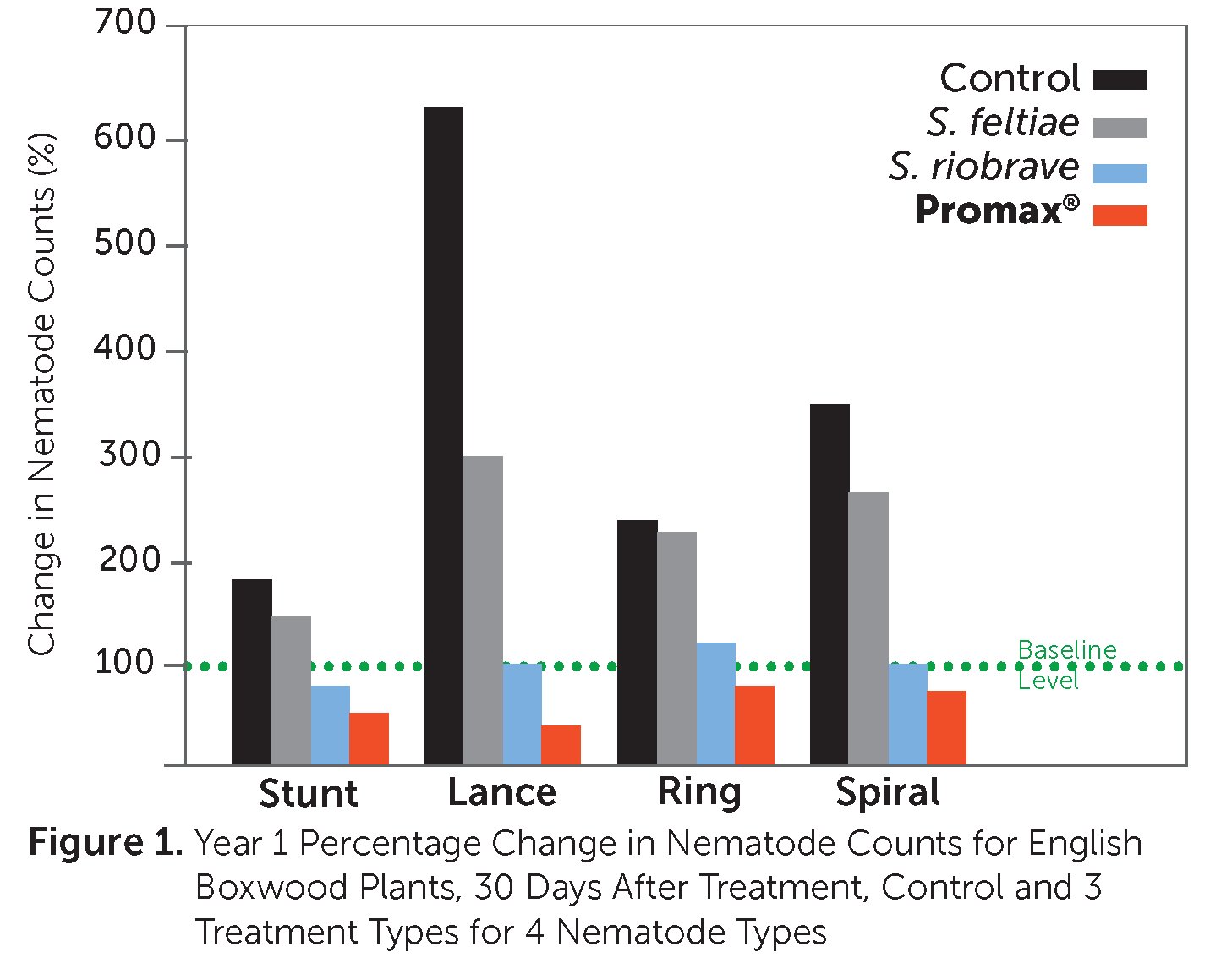Virginia Tech Kentland Experimental Research Farm, McCoy, Va.

The results reported in this trial demonstrate that application of 1 treatment of the nematicide PROMAX® reduced population percentages of the 4 plant-parasitic nematodes studied at both 7 days and 30 days post-treatment in years 1 and 2, with PROMAX® being more effective than the other 2 treatments studied for both time periods. This is an indication that PROMAX® suppresses nematodes by killing them on contact.
Repeated applications may be required to achieve suppression for periods longer than 30 days.
Related Posts

Nutrition-based Plant Growth Managers
Maximum Yield without Synthetic Hormones The HUMA GRO® plant growth managers are ideal for stimulating the plant to produce its own beneficial hormones naturally. This helps you deliver improved crop quality and yields, resulting in more uniform maturity and consistent size. The result is greater efficiency, productivity and profitability at harvest. Below are three featured

Introduction to Huma Gro®: Video

PROMAX® and PROUD 3® Video Testimonial from the Philippines
Roy Candelaria—representing Oracle Chemical Corporation in the Philippines—talks about his company being a pioneer in the organic movement and the important role played by Huma Gro® PROMAX® and PROUD 3®, particularly in the management of nematodes and clubroot (Plasmodiophora brassicae). “We have found no other existing products that can match Huma Gro®; the products are

